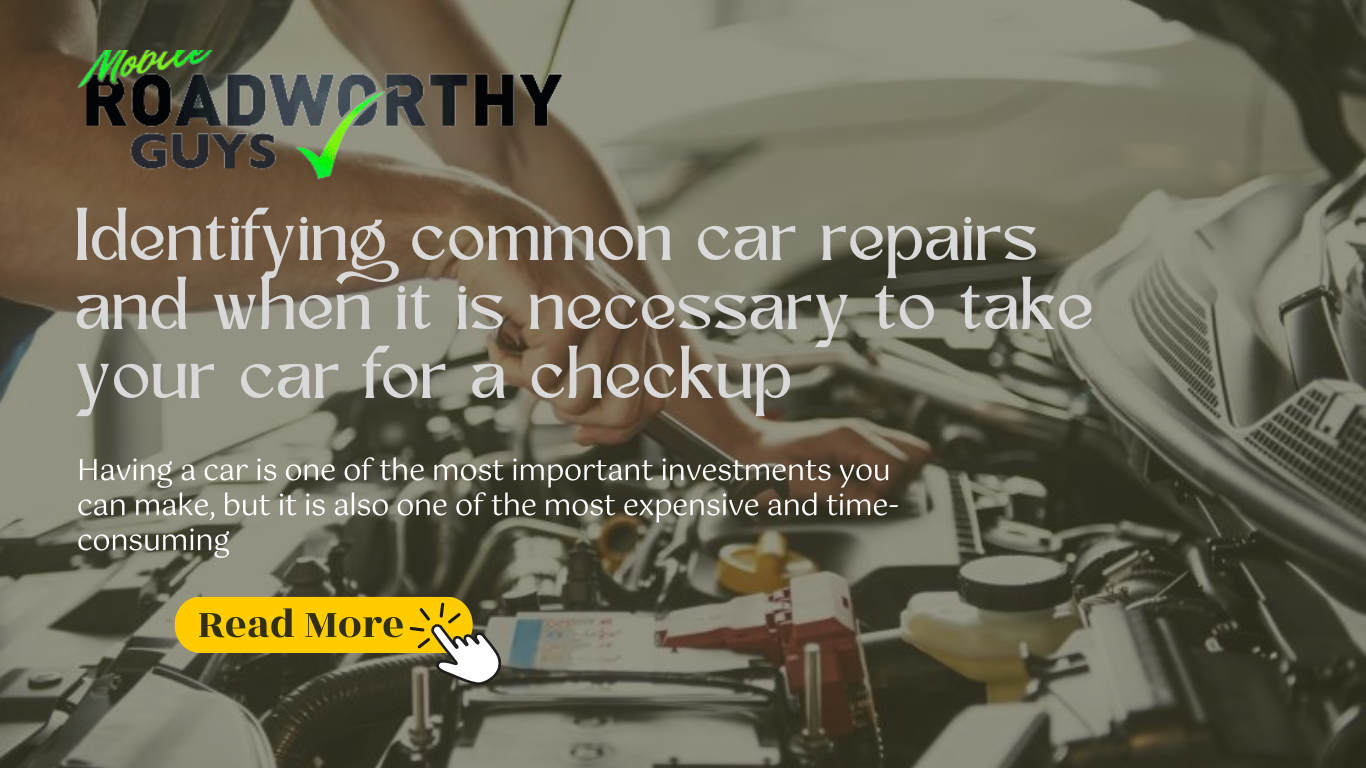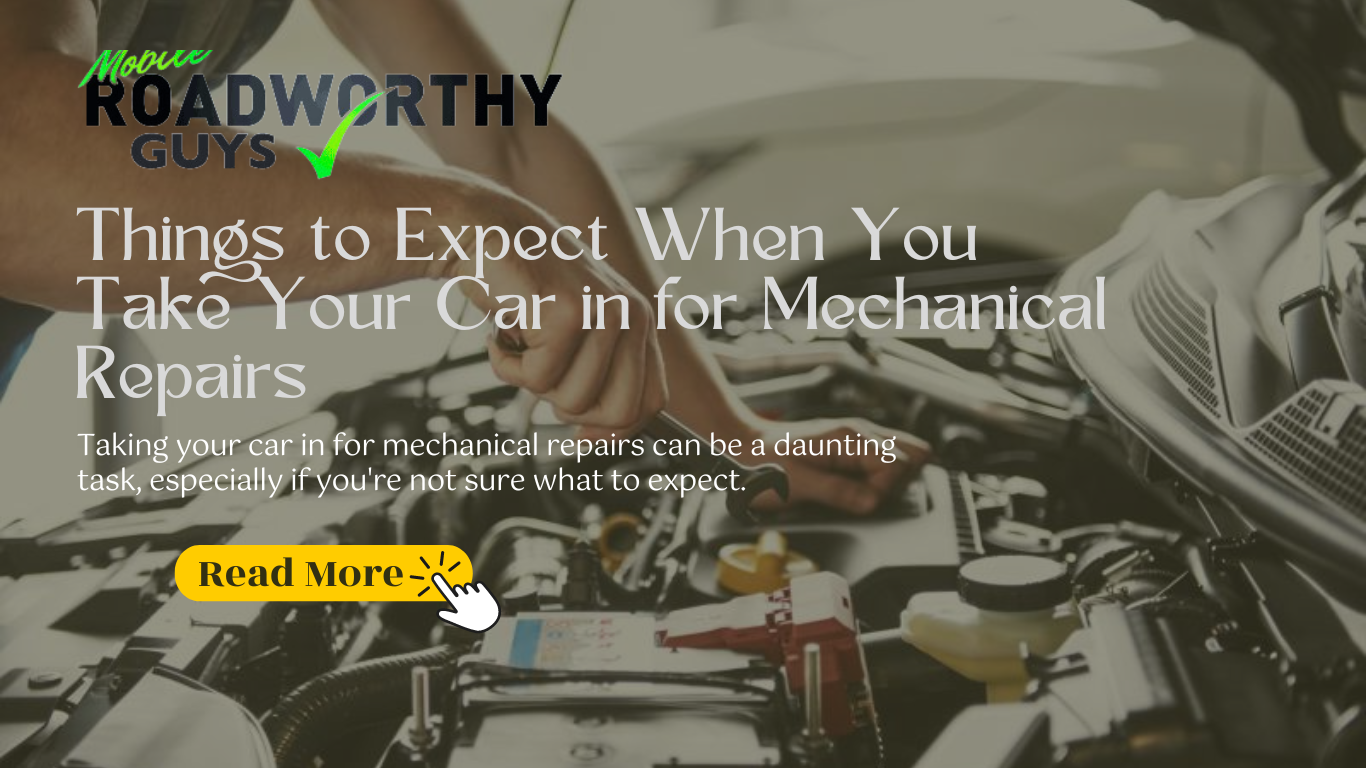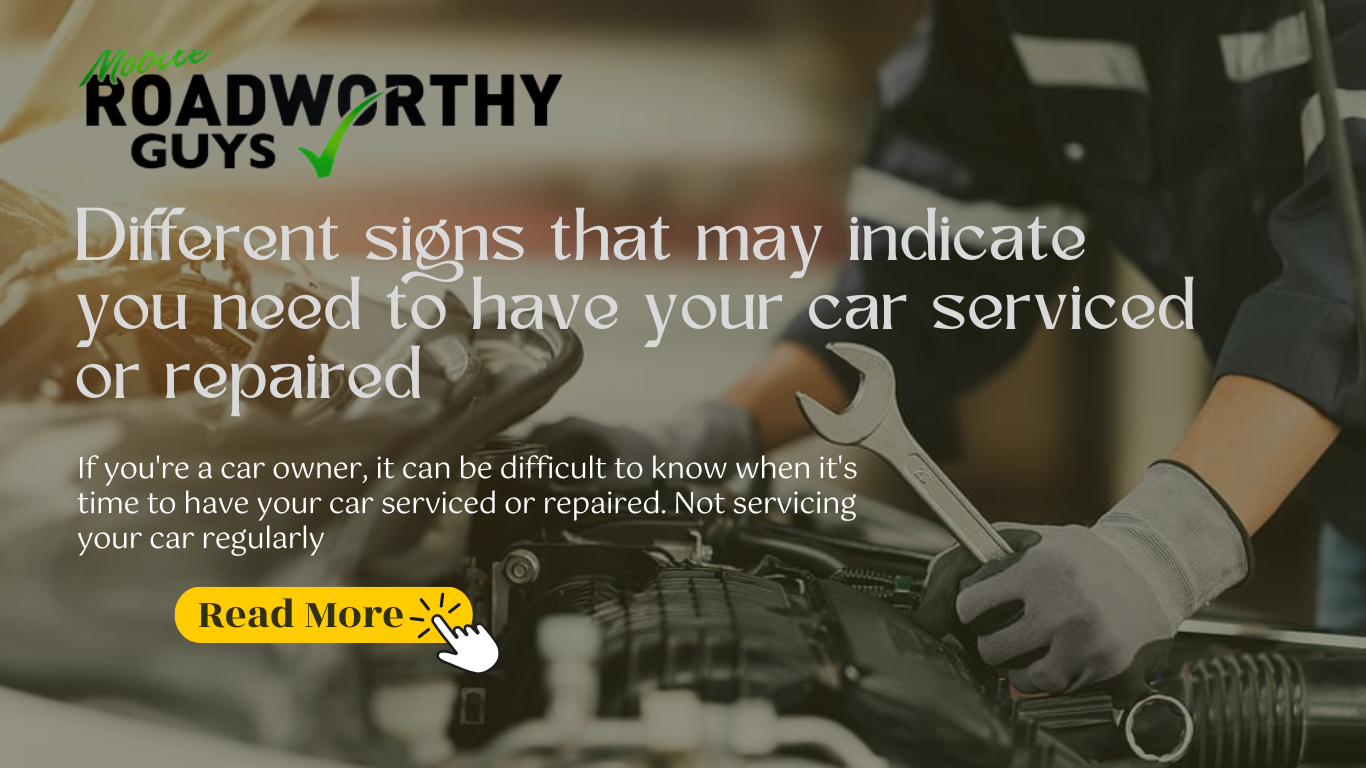A Mobile Roadworthy Guys Guide to Knowing When It’s Time for a Car Checkup
Having a car is one of the most important investments you can make, but it is also one of the most expensive and time-consuming. One of the best ways to take care of your car and avoid expensive repairs down the line is to regularly take it for checkups. This blog post will provide an overview of some of the most common car repairs and offer tips on when it is necessary to take your car for a checkup.

Replacing the battery
When it is necessary to replace a car battery, it is important to act quickly. A battery typically has a lifespan of between three and five years, depending on the type of car. Warning signs that your battery needs to be replaced include trouble starting the engine, dim headlights, or an illuminated check engine light. If you notice any of these issues, it is important to take your car to a mechanic for a full diagnosis. They will be able to tell if it is due to a failing battery or another issue. In some cases, it may be more cost-effective to replace the battery than to make repairs. Replacing the battery will ensure your car can start quickly and keep running for years to come.
Fixing a flat tire
If your car has a flat tire, you need to take action immediately. It is necessary to replace a flat tire to keep your vehicle safe and on the road. If you don’t replace it, you can cause serious damage to the wheel or suspension. When a tire is flat, it will be difficult to drive and can cause an accident if you don’t get it replaced as soon as possible. In addition to getting a new tire, you may also need to have the wheel balanced and aligned. It is important to make sure that the tire pressure is correct after replacing the tire so that it functions properly. Taking your car for regular checkups will help identify any problems with your tires before they become a major issue.
Replacing the serpentine belt
The serpentine belt is a critical component of the car engine. It runs over all the pulleys in the engine and transmits power from the crankshaft to the alternator, air conditioner compressor, and power steering pump. If the serpentine belt breaks, then none of these systems will work. It is important to check the serpentine belt regularly and replace it when necessary.
It is necessary to replace the serpentine belt if it becomes too tight or too loose. If it is too tight, then it will cause too much strain on the engine and can even cause it to overheat. On the other hand, if it is too loose, then it will not transmit enough power and the car won’t run efficiently. Additionally, if the belt looks worn, cracked, or frayed, then it must be replaced immediately as it could break at any time. If you hear a squeaking noise when accelerating, then it is likely that the serpentine belt needs to be replaced.
Flushing the radiator
Flushing the radiator is an important part of car maintenance and should be done every three years or 30,000 miles. It removes dirt and other particles from the cooling system, which can cause engine overheating or failure. Signs that your radiator may need to be flushed include a buildup of sludge or rust, an engine running at a higher temperature, or a leak in the system. If you experience any of these symptoms, it is important to take your car for a checkup to have your radiator flushed.
Replacing the air filter
It is important to regularly check and replace your car’s air filter, as it helps ensure the air you breathe in the car is clean. It is recommended to change the air filter every 15,000 miles, or at least once a year, depending on the type of vehicle you have. If your car starts to hesitate or stall when accelerating, or if the engine struggles to start, these may be signs that the air filter needs to be replaced. In this case, take your car to a professional mechanic to inspect and replace the air filter as soon as possible.
Topping off engine oil
It is important to make sure that your car’s engine oil is regularly topped off. This will ensure that your car runs smoothly and efficiently. It is recommended to check your engine oil level at least once a month, or when you take your car for a regular service appointment. If you find that your engine oil is running low, it is necessary to top off the oil right away. Doing so will help to prevent any damage to the engine and maintain its longevity. When topping off the oil, always use the correct type of oil as specified in your car’s owner’s manual.
Inspecting the brakes
It is important to inspect your brakes regularly, as they are critical to the safety of your vehicle. If you notice any squealing, grinding, or vibrations when pressing down on the brake pedal, it’s time to take your car in for an inspection. If you wait too long, the damage could become more costly, so it’s best to get your brakes checked as soon as possible. When inspecting your brakes, a mechanic will check for worn pads, rotors, and calipers. The mechanic will also check the brake fluid and ensure that the brakes are working properly. A regular inspection of your brakes can help you avoid costly repairs in the future.
Rotating the tires
Rotating your car’s tires is a necessary part of regular car maintenance. Depending on your car’s make and model, tire rotation should occur every 5,000 to 8,000 miles. This helps even out the wear and tear on the tires and prevents problems like uneven tread and decreased stability when driving. If you’re not sure when it’s time to rotate your tires, simply consult your owner’s manual or reach out to a trusted mechanic. Having a professional look at the tread depth of your tires is a great way to identify if they need to be replaced as well.



